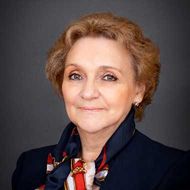- A
- A
- A
- ABC
- ABC
- ABC
- А
- А
- А
- А
- А
- HSE University
- Faculty of World Economy and International Affairs
- School of International Regional Studies
- News
- A Journey with the Arabic Calligraphy
-
School
-
Online
The School of International Regional Studies is a research and educational centre seeking to revive international regional studies as an academic discipline in Russia. The department’s world-class professors train the next generation of regional studies specialists while developing an increasingly prestigious research school.
Vinogradov A., Streltsov D., Nelidov V. et al.
Singapore: Palgrave Macmillan, 2024.
Seyedi Asl S., Sadygzade M., Alamdari S. Z.
Journal of Social Studies. 2025. Vol. 11. No. 1. P. 1-7.
Kanaev E., Fedorovskiy A., Kupriyanov A. et al.
In bk.: Russia and the World: 2024. Economy and Foreign Policy. Annual Forecast. IMEMO RAN, 2024. P. 105-111.
Shein S., Ryzhkin E.
Political Science. PS. Высшая школа экономики, 2022. No. 89.

A Journey with the Arabic Calligraphy
The seminar was opened and moderated by the head of the School of Foreign Regional Studies Vera Vishnyakova.
At the beginning Dr. Fakhroo provided the historical retrospective and the dynamical changes of Arab dynasties that gave an impetus to the development of different contemporary nations, languages and cultures. However, they all are united by the classical Arabic language of the Quran.
The expert explained that the first Arabic scriptures though written in Arabic cannot be read by an ordinary person. Sometimes, even the experts in Arabic have to carry out additional studies to read a separate piece of the text. The newer the scripture is, the easier it is to read.
Dr. Fakhroo named some important figures, who contributed to the development of Arabic writing: Ibn Muqla, Ibn al-Bawab, Yaqut al-Mustasimi, Sheikh Hambullah, Hafiz Osman, Hamid Aytac. Then the expert drew some examples of changes brought by local cultures and local languages to Arabic writing in India, Andalusia, China, Persia and Maghreb countries. Although the Arab language is used in those countries, it has substantially been influenced upon by local languages and writing, which is natural. As it happens in learning a foreign language, which is perceived through the norms of the native language, the writing, especially Arabic, is transformed by a particular writer. Some fonts are not used anymore for writing, but only for decorations.
Nowadays, the Arabic calligraphy is a direction in Arts: it can be used instead of pictures, graffiti and decorations. Competitions are held to choose the most talented calligraphist. Moreover, Arabic fonts were adopted to the computer use.
In the future, the expert expects more dynamic development of Arabic calligraphy, an emergence of new fonts and new ways of writing.
For video, please follow the link: https://youtu.be/fEUCOOQJ9T8
- About
- About
- Key Figures & Facts
- Sustainability at HSE University
- Faculties & Departments
- International Partnerships
- Faculty & Staff
- HSE Buildings
- Public Enquiries
- Studies
- Admissions
- Programme Catalogue
- Undergraduate
- Graduate
- Exchange Programmes
- Summer Schools
- Semester in Moscow
- Business Internship
-
https://elearning.hse.ru/en/mooc/
Massive Open Online Courses
-
https://www.hse.ru/en/visual/
HSE Site for the Visually Impaired
-
http://5top100.com/
Russian Academic Excellence Project 5-100
- © HSE University 1993–2025 Contacts Copyright Privacy Policy Site Map
- Edit



